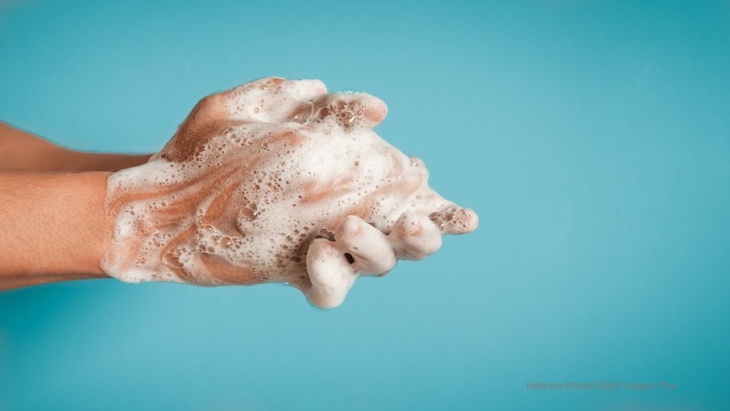Yes, here are more tips on handwashing to avoid food poisoning and coronavirus. Everyone has been told over and over again to wash their hands thoroughly during food preparation and pretty much all the time to avoid coronavirus. Still, the USDA is offering more information about why hand washing is so important.

We know that many food poisoning outbreaks have been linked to improper handwashing, especially when a cook or chef is working with raw meat and poultry. We also know that washing your hands thoroughly with soap and water will eliminate coronavirus.
When you are washing your hands, first wet your hands with clean running water. Turn the faucet off and add soap.
Lather your hands by rubbing them together. Make sure that you lather under your nails (scrub the nails into the palm of your other hand), the backs of your hands, and between your fingers. Some experts say to scrub your wrists too. Scrub for at least 20 seconds.
Then rinse your hands thoroughly under clean, running water. And dry your hands using a clean towel. I prefer using paper towels because you know they are clean.
These are the times when you should wash your hands:
- Before, during, and after you prepare a meal, especially when handling raw meat, poultry, seafood, and eggs.
- Before eating
- After using the bathroom
- After blowing your nose, coughing, or sneezing
- Before and after taking care of someone who is sick, especially if they have vomiting or diarrhea.
- Before and after treating a cut or wound
- After handling diapers
- After touching an animal or animal feed
- After handling pet food and pet treats
- After touching garbage.
The USDA has conducted research on handwashing and has found that 99% of a study’s participants did not wash their hands sufficiently before and during meal preparation. They asked people to make turkey burgers and a side salad. The researchers identified thousands of opportunities where people should have washed their hands but did not.
Participants didn’t even attempt to wash their hands between 70% and 75% when it was required. Wen they did wash their hands, most people did not do it for 20 seconds. Others didn’t wet their hands before applying soap and didn’t dry their hands with a clean or one-use towel.




